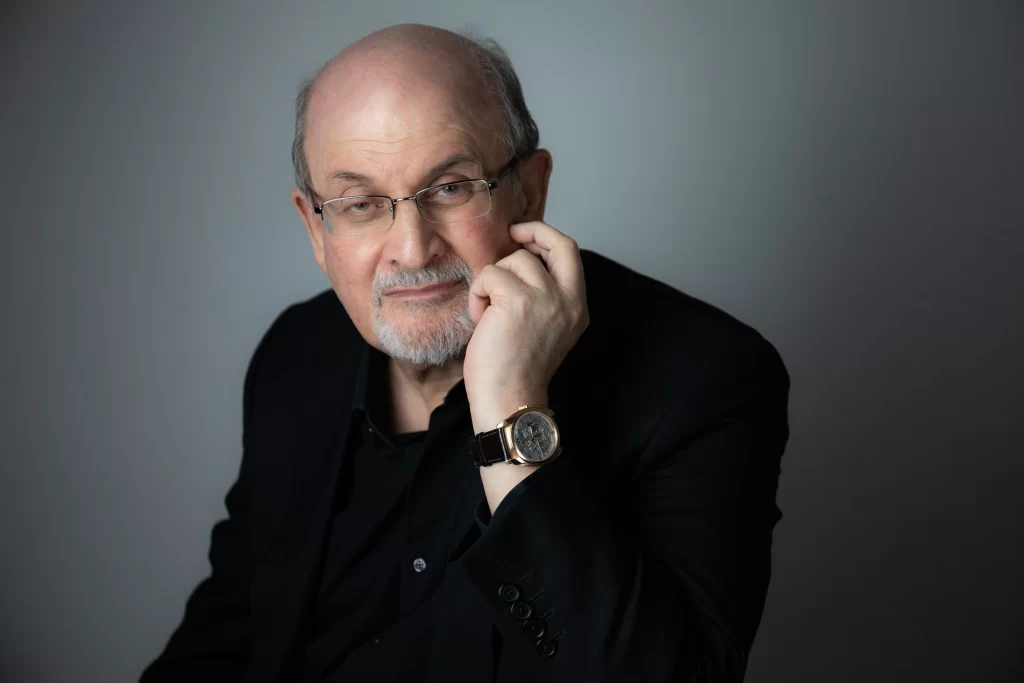
by Ralph Berry
When the Salman Rushdie affair exploded, and his novel THE SATANIC VERSES was made the cause of the Ayatollah Khomeini’s fatwa against him in February 1989, my initial reaction was: does blasphemy exist?
My impression had been that blasphemy, a common law offence in the Middle Ages and for centuries thereafter, had been phased out in modern times. This was certainly true in England, so it came as a surprise to me that in our own day it could be an issue. The common law offence of blasphemy was officially abolished in 2008, in the premiership of Gordon Brown, but there had been no convictions since 1843. Blasphemy was a mediaeval remnant. Of course, it survived linguistically in a purely secular way, meaning ‘cursing and swearing’. This was a natural and wholly characteristic development of the English language. It was not in any way controversial. But the fatwa remains, its ruling has not been lifted, and Rushdie has been under police protection against death threats for many years.
The rise of the Muslim population, which did not exist in any numbers before the immigration wave of the 1950s, meant that this easy-going abandonment of an ancient set of beliefs came under challenge. The ever-growing Muslim population became increasingly vocal and assertive. Last year, a religious studies teacher in Batley, West Yorkshire, was accused of blasphemy and went into hiding with his children after protesters demonstrated outside his school, and home.
A Muslim charity released his name online. He was suspended from his work, and though an independent investigation cleared him of wrongdoing his life was changed. He and his family left town.
And now a new confrontation is upon us. Cineworld has released a new film, THE LADY OF HEAVEN, which chronicles the life of the Prophet Muhammad’s daughter. This supposedly blasphemous film has met with angry protests in London, Birmingham, Sheffield, and Bradford from the substantial Muslim population in these centres. Cineworld has caved in, and pulled the film in England, ‘to ensure the safety of our staff and customers’.
This clash has been brewing for many years. The Government’s policy towards Islam has been, to put it frankly, appeasement. The silencing of artists by fundamentalist protesters is now seen to undermine the cohesion of British society. It could not be otherwise, and the Government will have to take action to tighten its rules. An easy irony is now upon us: Bradford, with its heavy Muslim population, is now named as the UK City of Culture for 2025. That city beat off the competition of the glorious Durham.
- Like
- Digg
- Del
- Tumblr
- VKontakte
- Buffer
- Love This
- Odnoklassniki
- Meneame
- Blogger
- Amazon
- Yahoo Mail
- Gmail
- AOL
- Newsvine
- HackerNews
- Evernote
- MySpace
- Mail.ru
- Viadeo
- Line
- Comments
- Yummly
- SMS
- Viber
- Telegram
- Subscribe
- Skype
- Facebook Messenger
- Kakao
- LiveJournal
- Yammer
- Edgar
- Fintel
- Mix
- Instapaper
- Copy Link









2 Responses
The fact is we are being terrorised into submission and no one in government will say anything about it. The powers that be appear to hope actual attacks can be prevented by buying off support for them with peerages, emoluments, fresh white girls, etc. When these don’t work, all that’s left in the government’s arsenal to keep the people of Britain safe are, as Theresa May revealed in 2017, “embarrassing conversations”.
Meanwhile, slowly but surely, the demographics are changing.
The weak horse loses every time. To complain about the outcome is to blame one’s own inadequate effort. Lack of passion for one’s own cause is suicidal.